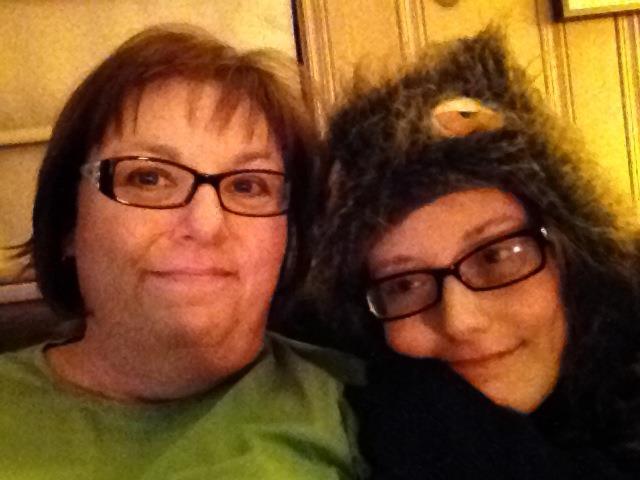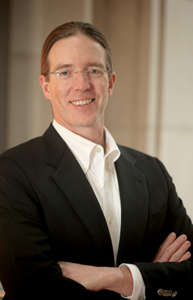[Short trailer for Dr. Ruston’s new film]
This is my third blog about “everyday heroes” — individuals who are speaking out about mental health. In this final blog in my series, I wish to pay tribute to filmmaker Dr. Delaney Ruston, who grew up under her father’s illness; Ed Aro, an attorney with the law firm, Arnold and Porter, who is a champion for our nation’s most despised citizens; and Chrisa and Tom Hickey, who are extra-ordinary parents.
These three join the list of everyday heroes who I’ve already featured: two song writers, a monologist, a cartoonist, a photographer, an activist parent and a community organizer. My point in writing this series has been simple: everyone of us, no matter who we are or where we live, can advocate for change.
We need better comprehensive community mental health care services. We need to stop the inappropriate imprisonment of individuals with mental illnesses whose only real crime is that they got sick. We need to bring an end to homelessness. We need to offer people hope and the tools that they need to empower themselves and recover. We need to care for those who are so mentally sick that they cannot care for themselves. Most of all, we need to educate our neighbors so that we can recruit them to help us finally overcome stigma.
It starts with one voice.
Delaney Ruston emerged as one of those powerful voices when she decided to take camera in hand and make a documentary about her
estranged relationship with her father, Richard, who was diagnosed with paranoid schizophrenia shortly after her birth. An internist and ethicist, Dr. Ruston chronicled her attempt to reconnect with her father in UNLISTED: A STORY OF SCHZIOPHRENIA, that was gut wrenchingly honest and emotionally gripping. 
Dr. Ruston is back this summer with a powerful new documentary entitled HIDDEN PICTURES: The Underexposed World of Global Mental Health, which offers viewers a global perspective by taking them to India, China, France, South Africa, and the U.S. An estimated 450 million people worldwide are believed to have a mental illness and in this documentary, billed as the first to examine mental illness on a globe scale, Dr. Ruston investigates how families in foreign countries view, treat and, in some cases, mistreat individuals with mental disorders.
Dr. Ruston’s need to understand her father led her to make her first film and that film caused her to wonder about families in other cultures. We are better because of her curiosity and dogged investigative skills.
Ed Aro is defending individuals with mental illnesses who some would claim are the absolute “worst of the worst” in our society — prison inmates locked up in our nation’s SuperMax federal penitentiary. Many of these men have committed horrific crimes that may or may not be linked to their mental disorders. Aro is demanding that the federal Bureau of Prisons transfer these ill prisoners to institutions where they can receive help for their mental disorders. [BOP’s own policies state that inmates with severe mental disorders are not to be housed at the SuperMax facility.] In a class action lawsuit filed last summer, Aro wrote:
Currently the BOP [Bureau of Prisons] turns a blind eye to the needs of the mentally ill at SuperMax and to deplorable conditions of confinement that are injurious, callous and inhumane to those prisoners. No civilized society treats its mentally disabled citizens with a comparable level of deliberate indifference to their plight.
You can read about conditions at the SuperMax and Aro’s class action lawsuit in a disturbing three part series written by The Atlantic’s Andrew Cohen. Tragically, some judges mistakenly assumed these inmates would get help for their “serious psychological and emotional problems” when they were sentenced to prison. As Aro documents, their pre-existing mental illnesses have only gotten worse and many of them will someday be released without ever receiving help. In his series, Cohen reminds us that more than a 150 years ago in a book aptly title House of the Dead, Fyodor Dostoevsky wrote that “the degree of civilization in a society can be judged by entering its prisons.”
Ed Aro is trying to hold our society to a badly needed much higher standard.
I’ve written about Chrisa and Tom Hickey before because I find their family story so inspiring. Timothy, who they adopted as a baby, was diagnosed with Emotional Disorder Not Otherwise Specified at age eight, Bipolar Disorder with Psychotic Symptoms at the age of eleven and with Schizoaffective Disorder Bipolar Type at the age of fourteen. His illness caused him to become such a danger to himself and others that Chrisa and Tom were forced to enroll him in a special boarding facility when Tim turned fifteen for persons who needed additional supervision.
Chrisa’s therapist suggested she journal her feelings and thoughts about raising a child with severe mental health issues so she began writing a blog called The Mindstorm. Through it, she became acquainted with a teenager named Erika who has a mental illness. When Erika’s mother died, Chrisa and Tom invited her to move to Chicago and live with them.
I’m a big fan of both Chrisa’s blog and Erika’s writings, which must be influenced by the teenager’s favorite OWL hat because she is wise beyond her years. Not long ago, Chrisa appeared on the Ricki Lake Show where she spoke out against stigma.

Chrisa and Erika with her OWL hat.
Erika is not the first child that Chrisa and Tom invited into their family. Their oldest son, Alex, is their only biological child. As mentioned, they adopted Tim at birth. Another daughter, Dianna was a foster child who they adopted at age four. She has RAD and frontal lobe epilepsy.
Chrisa and Tom understand that words without deeds are meaningless.
As I finish writing this series of blogs, I have resting on my desk a long list of other everyday heroes who I’ve met since my book was published six years ago. All of them inspire me. It is easy to get burned out because the issues that we face often appear to be overwhelming. I always find it helpful when I learn about the likes of Dr. Ruston, Ed Aro, or Chrisa and Tom, who are lighting candles of hope.
If you have an everyday hero who has inspired you, please share your story.





Within every mentally ill person who struggles daily to keep their sanity
and mainstreams themselves as productive citizens, is the heart of a hero. The dictionary lists one who has extreme courage as a definition.
To bravely face the demons of insanity, and then the painful constant horrors of stigmatization, is no doubt the most fearsome tasks a human can encounter. I see heroes everyday. and they’re not everyday heroes.They are the well-adjusted mentally ill, decent neighbors and friendly folk.
They’re on Social Security because no one will give them a job. They have few friends, because people can’t be bothered to understand others who may be a tad different from them, and its easier to fear. They are heroes because they have conquered their illnesses and can live normally.They are heroes because they try to assimilate, and are patient and forgiving with the stigmatizers. They are heroes because they never gave up on themselves, and they continue to look for work and friends.
They are the bravest of the brave, unsung heroes. Not many are “admired for their achievement and qualities”, a futher definition of hero. Perhaps mastering a serious mental illness is just too great a
human achievement for the average normal mind to fathom. Maybe the virtous qualities that must be honed to do it, are beyond the sight
of everyday people.
I am grateful for the everyday heroes who compassionately use their
social standing to uplift the less fortunate, those other heroes – the ones on the bus, on disabilty, in the food pantries. They don’t want a medal for heroism – just acceptance, a good job, and maybe recognition that they are no different from others – except for their
mental illness that they manage so heroically.
Well said! So many people are clueless about what it takes to fight and manage a mental illness. When my son has had to push his way through tough times in his illness he has said, “I feel like I am walking on broken legs.” He is an unsung hero.
Terri
Pete, your concise summary is spot on!
We need better comprehensive community mental health care services.
We need to stop the inappropriate imprisonment of individuals with
mental illnesses whose only real crime is that they got sick. We need to
bring an end to homelessness. We need to offer people hope and the
tools that they need to empower themselves and recover. We need to care for those who are so mentally sick that they cannot care for themselves. Most of all, we need to educate our neighbors so that we can recruit them to help us finally overcome stigma.
I am interested in Dr. Ruston’s new documentary on world cultures thoughts and actions on mental health. Wondering what it might be like living with a mental illness in China where human rights are a low priority. The Hickeys & Erika and Ed Aro are worthy heroes too.
I was not able to find a place to comment on Pat Milam’s advocacy piece. I watched him (online) testify in front of congressmen who were interested in improving the mental health system in our country. He was great as he pointed out the injustices his child suffered because of HIPPA and a dysfunctional community outpatient system. Many parents I know leave messages on psychiatrists and therapists answering machines because their adult children won’t let them talk to their service providers. Sometimes, the family’s input is addressed by the doctor or therapist, while other times the information blows up in their faces and is used against them. HIPPA is a hindrance because it interferes with timely mental health treatment that could make a difference in an individual’s life. Pat is a good choice for your blog!